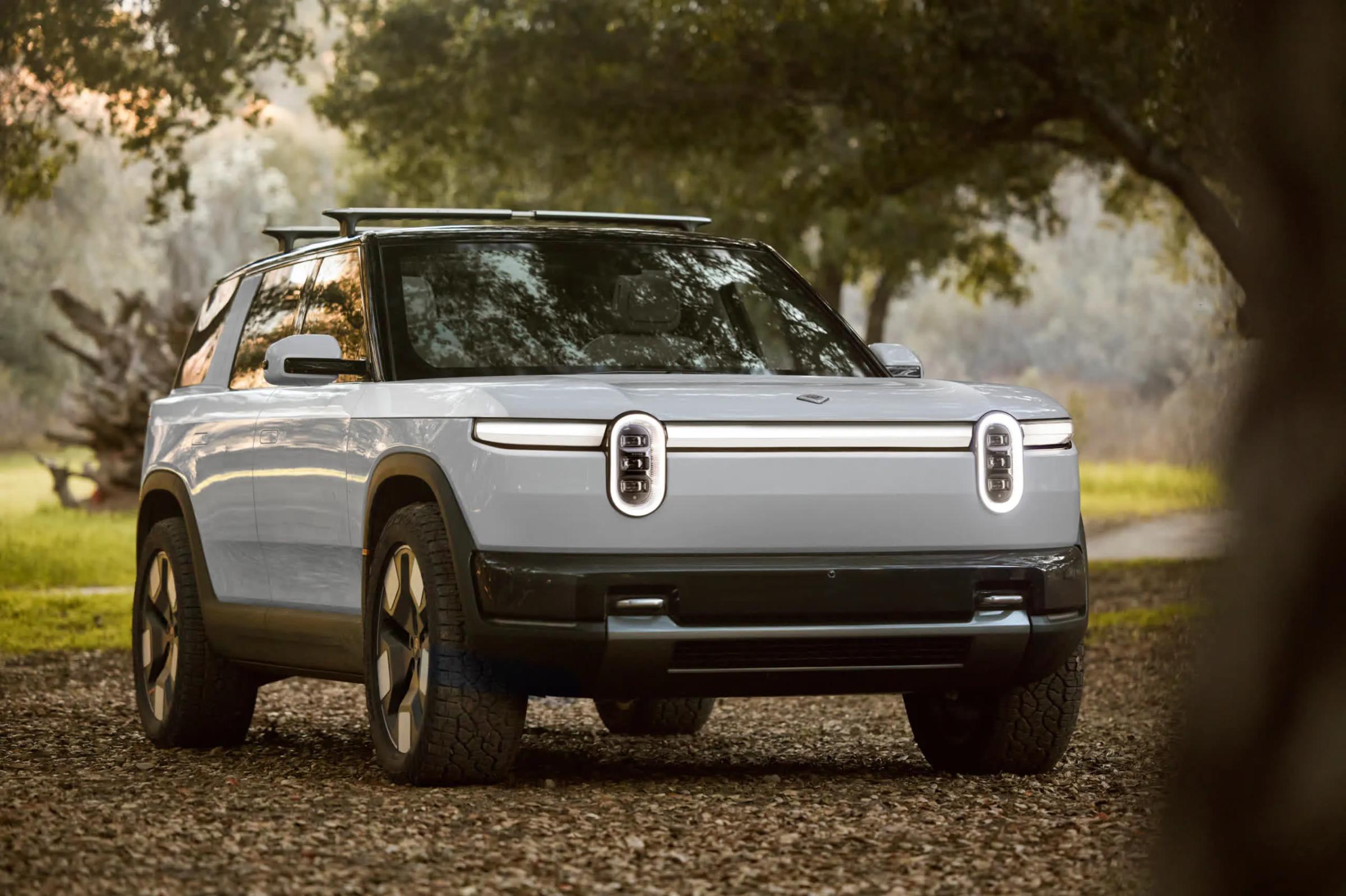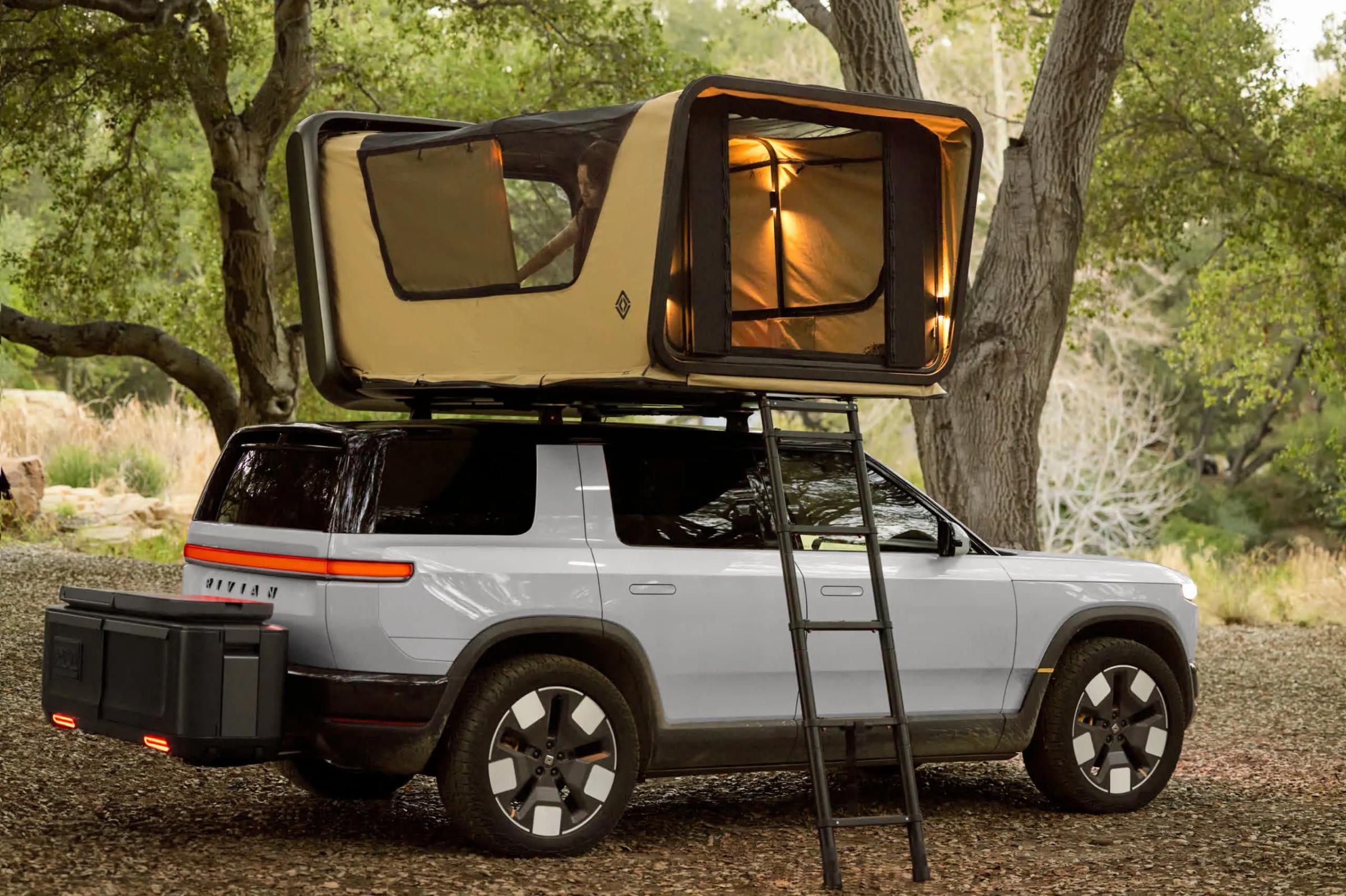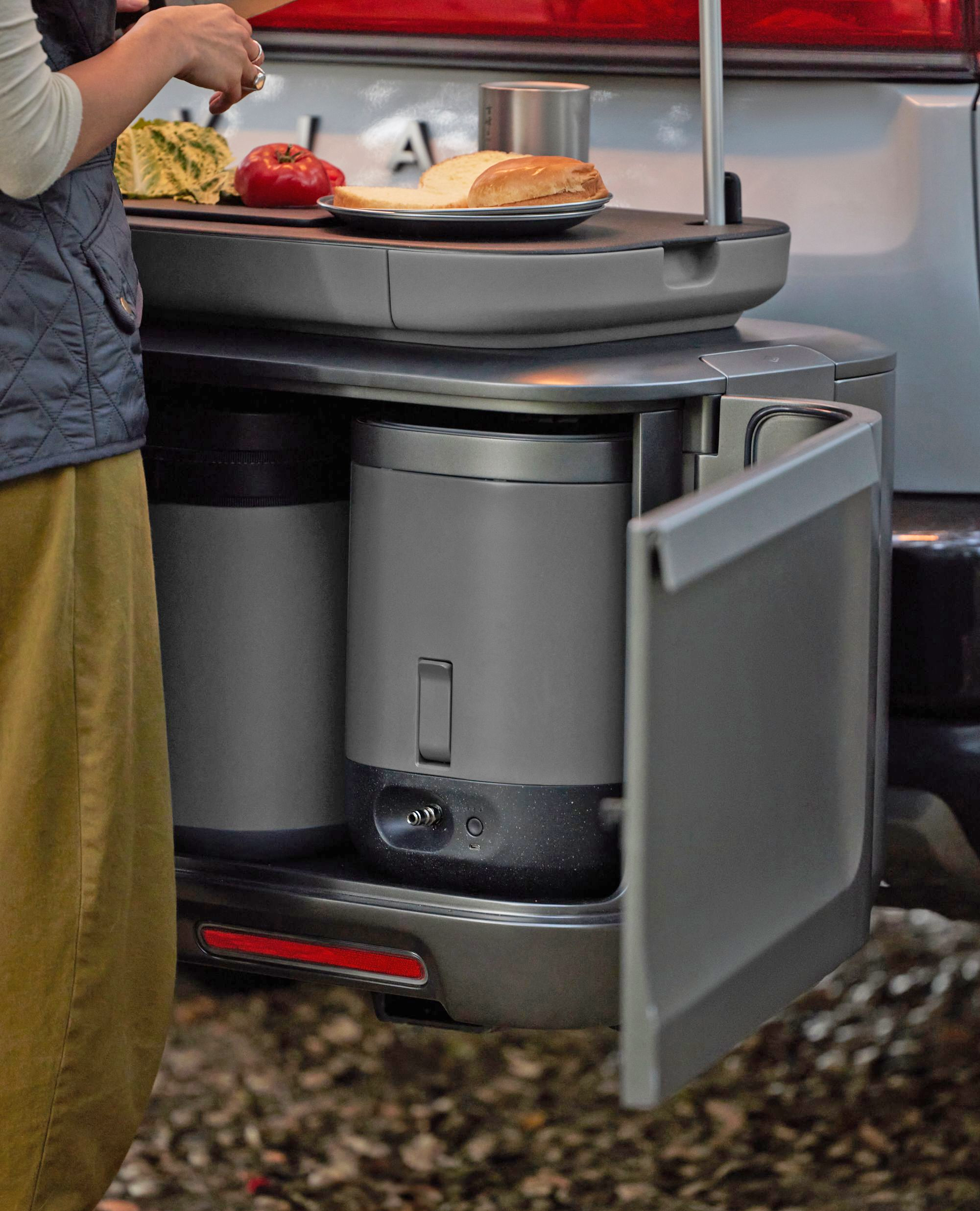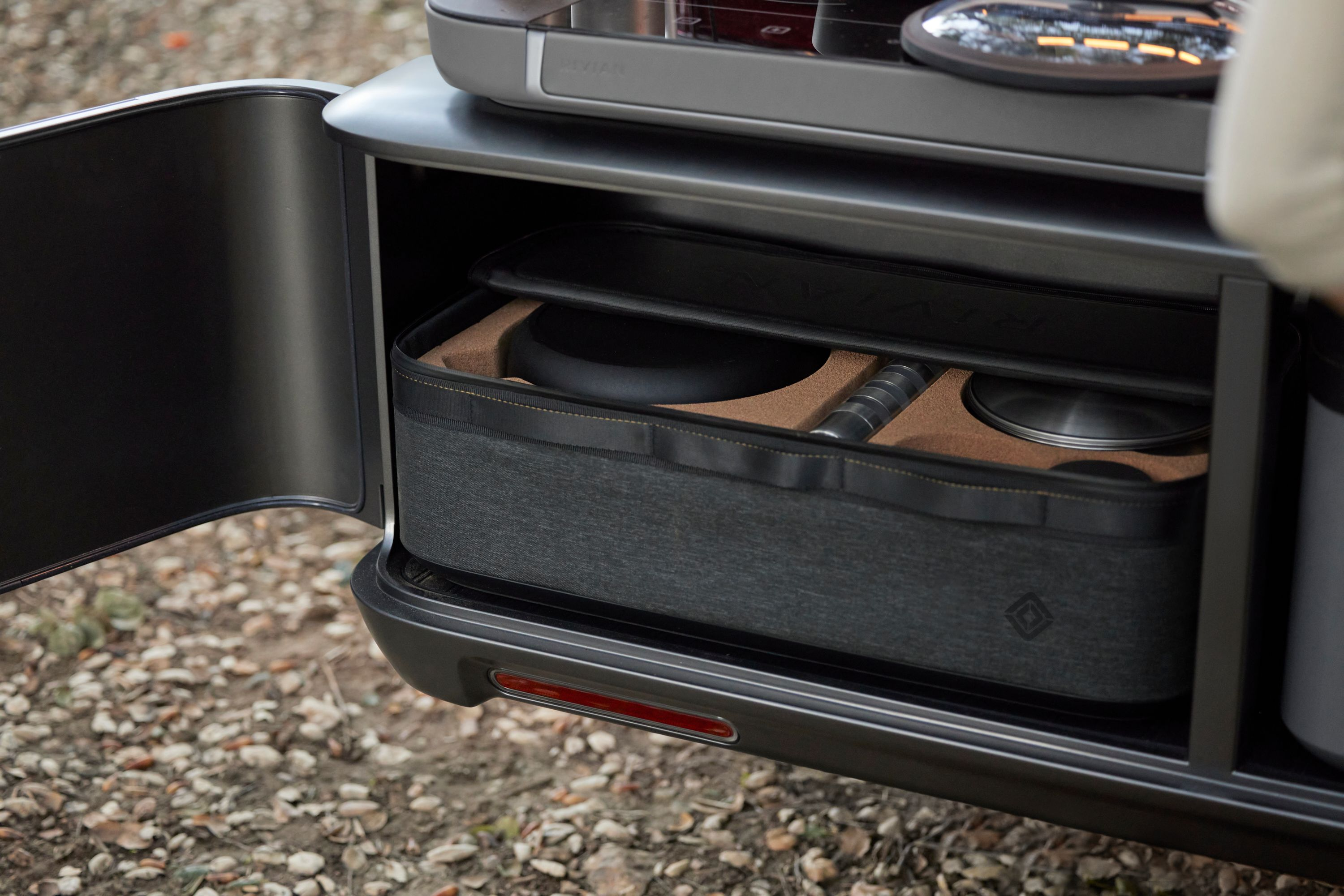ELECTRIC car maker Rivian has released details about its new R2 SUV which is set to be compatible with a series of accessories.
The motor is not due to be released until 2027 but fans are already getting excited at the customisation features it offers.
Those attachments include a rooftop tent and a travel kitchen so Rivian drivers can get out and explore nature.
Camping fans will first notice the tent that can be attached to the roof of the motor, keeping any sleepers off the ground in a so-called ‘Treehouse’.
The tent can be switched out for a storage box, with both being able to be reached by ladder.
A travel kitchen can also attach to the back bumper and can be replaced with other switchable accessories like a bike carrier or a carrying box.
The travel kitchen includes: a water tank, a cooler, an induction hob with additional storage and even a cookware set.
Rivian will also supply hanging lights so the campers can see what they are cooking.
The American manufacturer is also set to release an R3 model which is smaller and
The R2 is expected to sell for $45,000 in the US, which would be about £35,000.
Last month Rivian sent fans into a spiral after it announced a number of layoffs.
The electric truck and SUV manufacturer, seen as one of Tesla’s biggest rivals, said it would lay off around 10% of its salaried workforce.
Rivian also said it would produce around the same number of vehicles as in 2023.
Previous production estimates said the company wanted to build around 80,000 vehicles this year.
Instead, Rivian said it expects to build just over 50,000.
So far, the company has produced two models for the American consumer market.
The R1S, the company’s first consumer SUV, sold over 23,000 production models in 2023.
The R1T, the second-fastest pickup truck on the mass market with a 0 to 60 mph time right at 3 seconds, sold just under 20,000 iterations last year.
Customers have reported historically high satisfaction numbers with their Rivians.
SOME OF THE BIGGEST EV MISCONCEPTIONS DEBUNKED
- The battery needs changing every two years: Most manufacturers provide a minimum eight year/100,000 mile warranty on batteries – that’s longer than most combustion engine warranties.
- The electricity grid won’t be able to handle the increase in EVs: According to the National Grid, this won’t be a problem.
- EVs are at high risk of catching fire: Recent studies have shown EVs are actually less likely to catch fire than petrol cars.
- EVs break down more than normal cars: As they have fewer moving parts, EVs have actually been shown to break down less than petrol/diesel cars.
- You can’t charge EVs in the rain: They’ve been designed so that this isn’t a problem – simply follow the manufacturer’s instructions.















